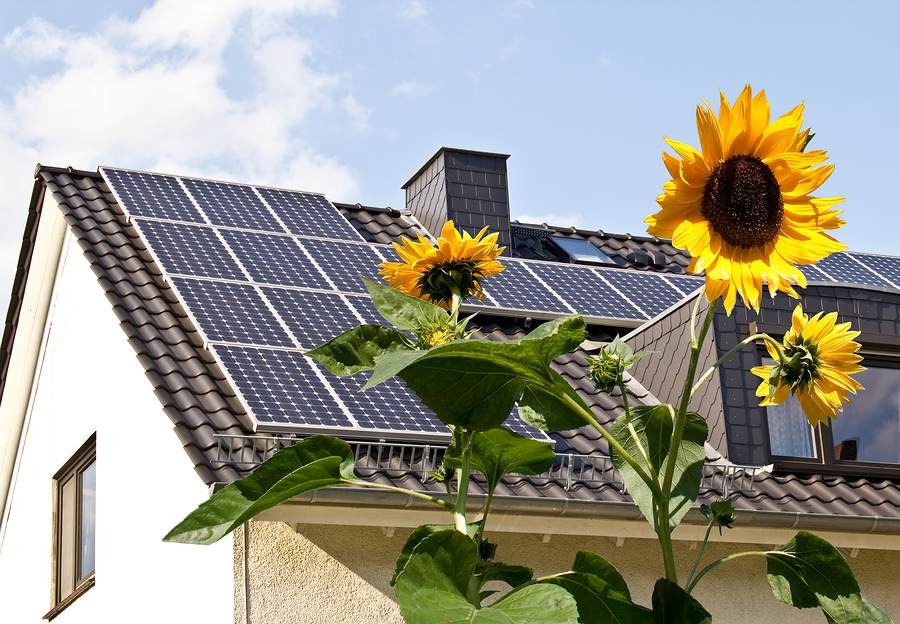News & Articles Solar panel houses can set off electricity bills soon
Solar panel houses can set off electricity bills soon
6 Oct 2015

Local households with solar photovoltaic (PV) panels on rooftops can look forward to netting off electricity bills by generating more electricity during daylight hours, said Sustainable Energy Development Authority (SEDA) chief executive officer Catherine Sidu today.
“This is a good mechanism which is likely to start next year and once we have discussed with the relevant stakeholders, namely the Energy Commision and the Ministry of Energy, Green Technology and Water (KeTTHA), on the framework and policies that will be made.
She said solar energy now has become the most popular approach of renewable energy (RE) usage as it is the easiest variation, compared with biomass, biogas and hydro.
“We would like to see the feed-in-tariff (FiT) available more for the small time players and individuals. For the bigger players who want to set up more than 1MW of solar energy, then we suggest they to go for the utility scale solar (USS).”
She said SEDA will continue to look into different possibilities of RE sources, including from solid waste, with many landfills in the country not having been tapped, and with the potential of generating wealth using the right technology.
In the process she added, it will reducing carbon dioxide emission and create a cleaner environment for future generations.
Malaysia is set to record over 2,000MW of energy from the RE sources by 2020 following two new mechanisms approved by the government, namely net-metering and USS.
SEDA chief operating officer Datuk Ali Askar Sher Mohamad said the developments surrounding RE had been encouraging since the introduction of the FiT in 2011, with 400MW or 40% having been connected to the solar power grid, out of the targeted 1,000 MW in 2015.
“With support from the government, we foresee overshooting the 2,000MW target with these two mechanisms and the existing FiT for energy security in place.
“We cannot depend on coal energy which we fully import mainly from Indonesia. Furthermore, the cost of solar PV is fixed, so we have to bring in RE soon, as it is predicted that government subsidies would be reviewed and reduced.”
He said the level of interest in investing in RE, particularly on solar PVs, has been encouraging from financial institutions due to proven results.
However, RE sources from the small hydro and biomass sectors are still lacking as there were not many successful stories to spur more investments.
“We are working to improve the technology for other RE sources and will engage with various industry players such as oil mills, plantation owners and interested foreign funds, to see how investments can be made to generate more RE resources in Malaysia.”
“This is a good mechanism which is likely to start next year and once we have discussed with the relevant stakeholders, namely the Energy Commision and the Ministry of Energy, Green Technology and Water (KeTTHA), on the framework and policies that will be made.
She said solar energy now has become the most popular approach of renewable energy (RE) usage as it is the easiest variation, compared with biomass, biogas and hydro.
“We would like to see the feed-in-tariff (FiT) available more for the small time players and individuals. For the bigger players who want to set up more than 1MW of solar energy, then we suggest they to go for the utility scale solar (USS).”
She said SEDA will continue to look into different possibilities of RE sources, including from solid waste, with many landfills in the country not having been tapped, and with the potential of generating wealth using the right technology.
In the process she added, it will reducing carbon dioxide emission and create a cleaner environment for future generations.
Malaysia is set to record over 2,000MW of energy from the RE sources by 2020 following two new mechanisms approved by the government, namely net-metering and USS.
SEDA chief operating officer Datuk Ali Askar Sher Mohamad said the developments surrounding RE had been encouraging since the introduction of the FiT in 2011, with 400MW or 40% having been connected to the solar power grid, out of the targeted 1,000 MW in 2015.
“With support from the government, we foresee overshooting the 2,000MW target with these two mechanisms and the existing FiT for energy security in place.
“We cannot depend on coal energy which we fully import mainly from Indonesia. Furthermore, the cost of solar PV is fixed, so we have to bring in RE soon, as it is predicted that government subsidies would be reviewed and reduced.”
He said the level of interest in investing in RE, particularly on solar PVs, has been encouraging from financial institutions due to proven results.
However, RE sources from the small hydro and biomass sectors are still lacking as there were not many successful stories to spur more investments.
“We are working to improve the technology for other RE sources and will engage with various industry players such as oil mills, plantation owners and interested foreign funds, to see how investments can be made to generate more RE resources in Malaysia.”
Source: Therakyatpost.com
Latest Posts
-
Gong Xi Auction Fair Draws Strong Interest from Both First-Time and Experienced Buyers
-
Gong Xi Auction Fair: Start the Lunar New Year with Smart Property Investments
-
Highest Bidder Strikes Gold at NCM Co November Auction Carnival 2025
-
November Auction Carnival 2025 Returns — Nearly 600 Properties Up for Grabs!
-
SkyWorld raih emas pertama di Anugerah ESG The Edge Malaysia 2025